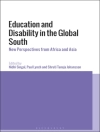Systems of state education are a crucial means for realizing the state’s focal aspiration of guaranteeing solidarity and civil loyalty (Van Kemenade, 1985 pp. 854ff. ). The means at hand include the state’s structuring and organization of schooling, determination of what education is compulsory, examinations that decide admittance to institutions of secondary and tertiary education, the design of educational aids, curricula, textbooks, didactic methods, and the general distribution of resources to schools. A further apparatus is that of teacher education and the regulations for appointment to the schools and remuneration (van Kemenade, 1985, p. 850). There are indications that the issue of equality and equity for all in education is a dilemma prevalent in systems of state education, among others, because the advancement of equity is liable to interfere with the state’s main goal. It is highly likely that the failing does not derive from contingent misund- standings, but rather from systemic contradictions. With this in mind, this book suggests a broad-spectrum approach to understanding how state education gets done, so to speak, and what in the process seems to obstruct impartiality. The case that I will examine is that of the state system of education in Israel. Underlying the study is the sociological assumption that an analysis of how one state system works is likely to bear a message that can be generalized.
Devorah Kalekin-Fishman
Ideology, Policy, and Practice [PDF ebook]
Education for Immigrants and Minorities in Israel Today
Ideology, Policy, and Practice [PDF ebook]
Education for Immigrants and Minorities in Israel Today
购买此电子书可免费获赠一本!
语言 英语 ● 格式 PDF ● ISBN 9781402080746 ● 出版者 Springer Netherlands ● 发布时间 2007 ● 下载 3 时 ● 货币 EUR ● ID 4467489 ● 复制保护 Adobe DRM
需要具备DRM功能的电子书阅读器












